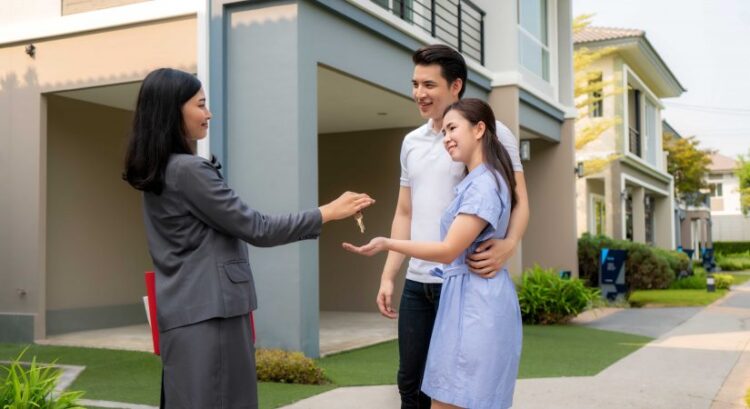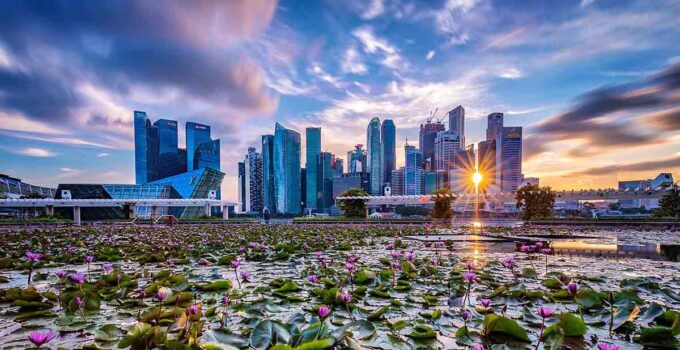Singapore’s property market is a vibrant and dynamic arena, offering a plethora of opportunities for foreigners looking to invest in an apartment. This blog post delves into essential tips and insights to guide you through the process.
Page Contents
1. Understanding Foreign Ownership Rules

Source: propertyscout.co.th
In Singapore, foreign ownership of property comes with specific regulations. Non-Singaporeans can purchase private apartments and condominiums without much restriction, but purchasing landed properties requires government approval. This approval is generally granted for high-net-worth individuals and is subject to conditions.
It’s crucial to understand these rules to avoid legal pitfalls. Moreover, permanent residents have slightly more privileges, including eligibility for subsidized housing under certain conditions. Familiarizing yourself with these rules is the first step in navigating Singapore’s property market successfully.
2. Researching Singapore’s Property Market
Effective research is key. Singapore’s property market is diverse, with fluctuations in prices and demand based on location, economic conditions, and government policies. Utilize online portals, market reports, and historical data to understand trends.
Pay attention to factors like future development plans and infrastructural changes, as these can affect property values. Consider the rental yield, resale value, and demand in different areas. This research will help you make an informed decision about where and when to invest.
3. Choosing the Right Location

Source: business-magazine.mu
Location is pivotal in real estate investment. In Singapore, prime districts like Orchard Road and Marina Bay are highly sought after, but they come with a hefty price tag. Emerging neighborhoods like Punggol and Tampines offer modern amenities at more affordable prices.
Consider proximity to MRT stations, schools, shopping centers, and business hubs. Your choice should align with your lifestyle preferences and investment goals, whether it’s for rental yield or capital appreciation. This is one of the reasons why you should consider Hillhaven as one of the best options.
4. Setting Your Budget Wisely
Setting a realistic budget is crucial. Apart from the purchase price, factor in additional costs such as stamp duty, legal fees, and maintenance expenses. As a foreigner, you will be subject to an Additional Buyer’s Stamp Duty (ABSD), which significantly increases the cost.
Align your budget with your long-term financial goals and ensure you have adequate funds for unforeseen expenses. A well-planned budget will safeguard you from overstretching financially.
5. Working with a Qualified Real Estate Agent

Source: allproperties.com.ph
Partner with a reputable real estate agent. They provide valuable insights about the market, assist in finding properties that match your criteria, and help navigate the complexities of Singapore’s real estate regulations. Choose an agent with experience dealing with foreign buyers, as they can offer tailored advice and support. Their negotiation skills can also be invaluable in securing a good deal.
Understanding legal and regulatory requirements is vital in Singapore’s property market. This not only includes knowing the rights and obligations under the Residential Property Act but also comprehending the nuances of securing a mortgage as a foreign buyer. The legal paperwork involved in property transactions can be complex, involving various permits and approval processes.
Engaging a lawyer for legal due diligence and contract review is essential. They can navigate the legalities, ensuring compliance with all regulatory requirements and safeguarding your interests. This step is crucial for a smooth and legally sound purchase, preventing potential disputes or legal inconveniences in the future.
7. Financing Options for Foreign Buyers

Source: marcopolis.net
Financing options for foreigners in Singapore vary significantly from those for locals. Most banks offer housing loans, but the terms, interest rates, and eligibility criteria differ. Factors influencing loan eligibility include income, credit history, existing liabilities, and sometimes the specific property type.
It’s advisable to thoroughly compare different loan options and seek financial advice to tailor a solution to your specific needs. This process may involve negotiations with banks to secure favorable terms. Ensure that you understand the fine print of loan agreements, as this will be a long-term financial commitment.
8. Evaluating Property Developers and Projects
Evaluating the reputation and track record of property developers is a critical step. Research their past projects, focusing on the quality of construction, adherence to delivery timelines, and post-sales service. Visiting showflats and ongoing projects provides a tangible sense of the developer’s capabilities.
It’s also wise to check reviews and feedback from previous buyers. Understanding a developer’s reliability and the project’s potential can significantly impact your investment’s success. Consider also the developer’s financial stability and history of handling market fluctuations, as these can affect project completion.
9. Negotiating the Purchase Price

Source: peakbusinessvaluation.com
Negotiation in property purchase is an art, especially in a market as competitive as Singapore’s. A clear understanding of the property’s market value, coupled with well-informed research, can empower effective negotiations.
Leverage the expertise of your real estate agent, who can offer insights into the seller’s motivations and potential flexibility in price. A well-negotiated deal can result in considerable savings. However, it’s important to strike a balance; being overly aggressive in negotiations might lead to losing a desirable property in this fast-paced market.
10. Considering Additional Costs
When purchasing property in Singapore, be aware of additional costs. These include stamp duties, legal fees, agent commissions, and ongoing maintenance fees, which can accumulate to a substantial amount.
For foreigners, the Additional Buyer’s Stamp Duty (ABSD) is particularly significant, markedly increasing the overall cost. Budgeting for these expenses is essential for a realistic financial plan. It’s also prudent to consider potential future expenses, such as renovations, repairs, or upgrades, which could impact your financial planning.
11. Property Inspection and Due Diligence

Source: steamboatsprings-realestate.com
Conducting thorough property inspections and due diligence is a non-negotiable step in the purchase process. This involves scrutinizing the physical condition of the property, ensuring there are no outstanding maintenance fees, and verifying the property’s legal status.
Hiring professional inspectors is advisable for an unbiased assessment. They can identify potential issues that may not be immediately apparent, such as structural weaknesses or plumbing problems. This step is crucial to avoid future complications, unexpected repair expenses, and to ensure you are making a sound investment.
12. Finalizing the Apartment Purchase
Finally, to complete the purchase, sign the sales agreement and fulfill the financial transactions as per the contract. Ensure all legal documentation is in order and filed correctly. After the completion of the sale, the property will be legally transferred to your name. Congratulations, you are now a proud owner of a Singapore apartment!
Navigating Singapore’s property market as a foreigner can be challenging, but with the right approach and guidance, it can also be highly rewarding. By understanding the nuances of the market and following these tips, you can make an informed and successful investment in one of Asia’s most dynamic real estate markets.





